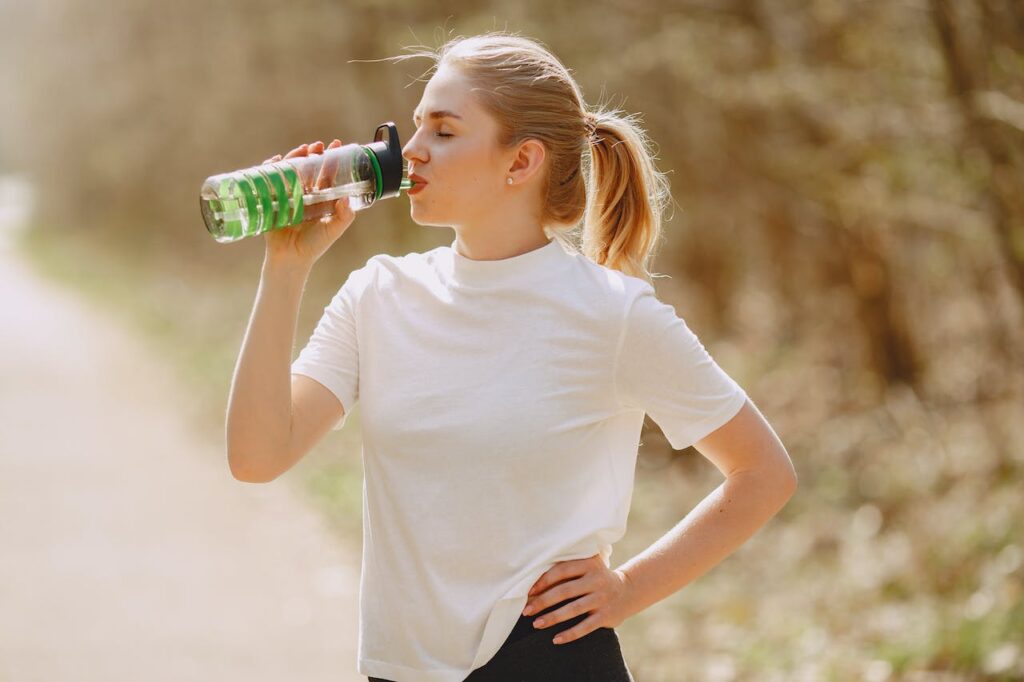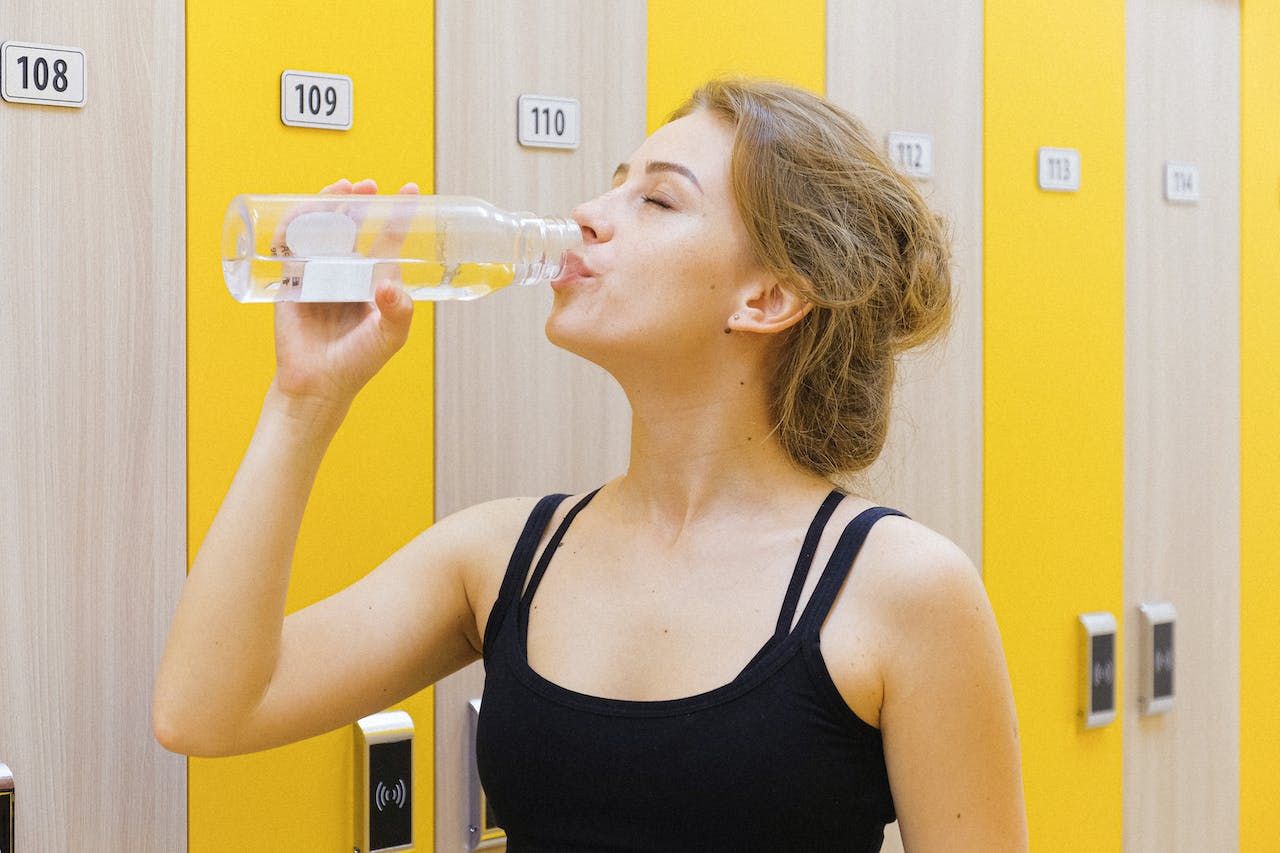Have you ever felt the parching heat of a scorching summer day, where every drop of water felt like a lifesaver? Or perhaps you’ve experienced the sensation of your mouth dry and throat scratchy after a vigorous workout?
H2O is more than a fundamental need; it is the energizing elixir keeping us alive that satisfies thirst, reinvigorates our bodies, and sustains our movement forward each day. For females, comprehension about how crucial drinking water is and understanding how much liquid you require every day can enormously influence your wellness and prosperity.
Water is essential for good health, but determining the right amount to drink can be challenging. Factors such as health, activity level, and location can influence individual water needs.
National Academies of Sciences, Engineering, and Medicine recommends that adult women consume about 11.5 cups (2.7 liters) of fluids per day, including fluids from water, other beverages, and food. However, this recommendation can vary depending on individual circumstances.
Staying hydrated is important for optimal health and vitality, as water supports various bodily functions, including waste elimination, temperature regulation, joint lubrication, and protection of sensitive tissues.
Factors that affect fluid needs for women
A woman’s daily water needs depend on several personal characteristics. Her biological sex is one factor that impacts hydration requirements. Body weight also plays a role, as larger individuals generally need more fluids. Life stage matters too – pregnancy or breastfeeding means a female will require additional H2O. Diet quality and daily water intake. influences hydration, as some foods contain high water content. Finally, a woman’s activity level makes a difference. Those expending more calories through exercise typically need to drink more to replace lost fluids.
Men generally need more fluid, with the necessary glasses of water a day increasing due to their larger body mass and higher calorie burn. Body weight plays a role in determining how much water you should drink, with higher body weight requiring more glasses of water.
Pregnant and breastfeeding women have increased fluid requirements to support the growth and nourishment of the baby. Diet quality and the consumption of hydrating foods like fruits and vegetables can impact fluid needs. Lastly, physical activity and hot weather can increase sweat and fluid loss, necessitating additional water intake.
It’s crucial for females to be conscious of these aspects and alter their water consumption levels appropriately to guarantee the best wellness and prosperity.
Factors Affecting Fluid Needs:
- Birth sex
- Body weight
- Life stage (pregnancy or breastfeeding)
- Diet quality
- Activity level
Tips for staying hydrated as a woman

To make sure women get the right amount of water and stay hydrated, here are some easy tips to follow.
1. Get ahead of your thirst: Drink water before you feel thirsty or start being physically active. Staying hydrated proactively can help prevent dehydration from setting in.
2. Pay attention to the color of your urine to check your daily water intake. You should aim for clear or very pale yellow urine, as this shows that you’re properly hydrated. Darker yellow urine could mean you’re becoming dehydrated.
3. When considering adequate fluid intake, it’s important to factor in specific circumstances such as exercise, pregnancy, and breastfeeding. Activities that cause increased sweating, like exercise, require additional fluids to rehydrate the body. Pregnancy and breastfeeding also necessitate extra fluid
4. Adjust water intake during exercise: According to the American College of Sports Medicine, for every 30 minutes of exercise, add an additional 12 ounces of water to your daily intake. This helps replenish the fluids lost through sweat and maintain optimal hydration levels.
5. It is important for expectant and nursing mothers to drink more fluids each day. Pregnant women and those who are breastfeeding need an additional 24 to 32 ounces of water daily or several glasses a day to stay hydrated themselves and meet their baby’s needs.
The growing baby and breast milk production increase a mother’s fluid requirements. Drink plenty of water every day and other healthy beverages to support your health and your baby’s development.
6. When choosing beverages, water should be your top selection for staying hydrated. While sugary drinks offer flavors, they contribute excess calories without optimal hydration. Stick primarily to water intake and enjoy other options sparingly for balanced hydration.
It’s important to recall getting enough water for females is fundamental for general wellness and satisfaction. By pursuing these suggestions and staying conscious of your hydration necessities, you can ensure suitable water consumption, remain hydrated, and assist your body’s significant capacities.
The importance of staying hydrated
Maintaining proper hydration is crucial for overall health and well-being. As a woman, ensuring you are getting the recommended water intake to support your body’s needs and functions is essential. Water plays a vital role in various bodily functions, including maintaining body temperature, lubricating joints, eliminating waste, and protecting sensitive tissues.
Staying hydrated is essential for both physical and mental health. Drinking enough water can enhance sleep, thinking skills, and your mood, allowing you to feel your best all day long. Proper hydration supports restorative sleep by transporting nutrients and flushing out toxins. It also fuels your brain by maintaining ideal blood flow, which optimizes cognitive performance. Staying hydrated balances electrolytes in a way that lifts spirits. Make sure to measure your daily water intake.
The amount of water you drink each day allows your body’s systems to work at their best. Whether you’re at the office, at home, or exercising, focusing on how much water you should drink plays an important role. Pay attention to when thirst strikes and consciously drink fluids regularly. This helps maintain H2O levels so you feel at your best by figuring out how much water to drink per day.
Avoiding excessive water intake
While staying hydrated is important, it is equally crucial to avoid excessive water intake. Drinking too much water, especially in a short period, can lead to a condition called hyponatremia, where the sodium content in the blood becomes diluted. This can be life-threatening.
Fit and nourished grownups scarcely experience this issue, however competitors might be in a higher hazard amid long or profound activities. It’s critical to tune in to your body’s thirst signs and not compel outrageous water utilization. Recollect, balance is vital.
There are a couple ways to know if you’re staying hydrated without consuming too much water. Check the shade of your urine – light yellow or clear means your body has enough fluid. Also listen to your thirst. Drink when you feel thirsty since that’s your body’s cue it requires more water. Quenching thirst with water helps keep things balanced without the possibility of overdoing it on H2O.
Finding the right balance in how many glasses of water a day you drink helps ensure you maintain proper hydration without endangering your well-being. Pay attention to what your body needs in terms of how much water to drink every day. Recognize that even something as crucial as water can pose issues if overdone.
FAQ
How much water should a woman drink in a day?
The United States National Academies of Sciences, Engineering, and Medicine advises that grown women consume around 11.5 cups (2.7 liters) of liquids every day, including liquids from water, other drinks, and food. Still, personal water needs can fluctuate.
What factors affect fluid needs for women?
A few things affect how much fluid a woman requires each day. Her body’s biology at birth impacts needs as does current weight and life stage. Pregnancy or nursing a baby increases requirements. The foods someone eats and amount of physical activity also play roles. A diet full of fluids or very active lifestyle
What are some tips for staying hydrated as a woman?
Be proactive about hydration by sipping water before you feel thirsty or start an activity like exercise. Don’t wait until you’re thirsty to drink.
Thirst isn’t always a reliable indicator that your body needs fluids. Pay attention to the color of your urine too – it should be light yellow or almost clear. If it’s dark, you need to drink more water.
Consider any extra fluid needs from things like exercise or pregnancy. Intense exercise means you’ll lose more water through sweat so you need to replace those fluids. And expectant mothers have higher hydration requirements. Choose plain water as your go-to beverage whenever possible. Limit sugary drinks like soda
Why is staying hydrated important for women?
Drinking enough water every day is crucial for women since H2O performs many essential jobs in the body. Water helps regulate your internal temperature and keep joints moving smoothly. It also transports nutrients to cells and carries waste products away from them.
H2O cushions and protects delicate tissues from damage. Staying hydrated can even boost quality of sleep, brain function, and your mood. From transporting nutrients to flushing out toxins, water plays a pivotal role in overall wellness.
How can women avoid excessive water intake?
It’s best if women pay attention to their body’s thirst signals instead of mindlessly drinking too much water. Gulping down large amounts of H2O, especially within a short timeframe, can result in a state called hyponatremia.
This occurs when sodium levels in the blood become too diluted by excessive water intake. Hyponatremia poses serious risks to health and can even endanger one’s life. Rather than forcing copious water consumption, listen to your body’s cues and drink water only when truly thirsty. This helps



